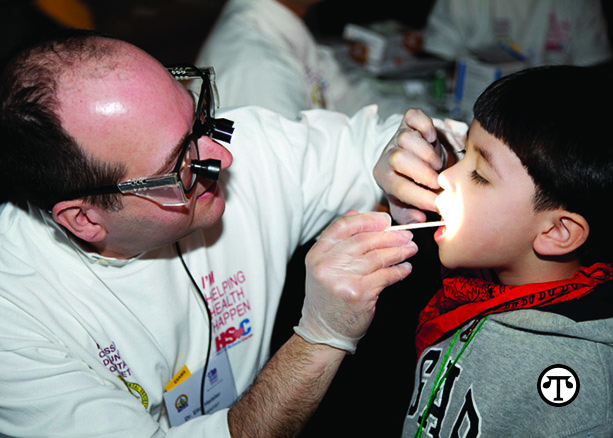
(NAPSI)—Here’s information many families may care to sink their teeth into: Although tooth decay is largely preventable, it remains one of the most common chronic diseases of children.
The Problem
According to the U.S. Centers for Disease Control and Prevention (CDC), nearly one in four children under the age of 5 already has cavities, while tooth decay is four times more common than asthma among adolescents.
What’s more, children are five times more likely to seek emergency room treatment for dental problems than for asthma, often because they can’t see a dentist, are uninsured or can’t afford routine care.
The effect of untreated caries goes far beyond oral health. Children with toothaches have more school absences, cannot pay attention in school or keep up with their peers academically, and have lower standardized test scores. Yet when state revenues begin to decline, dental care is often the first thing cut from state Medicaid budgets. Restoring the lost revenue has proven to be a difficult and slow task. Many people have asked their state legislators where they stand on the issue.
What You Can Do
The good news is that tooth decay is preventable.
To ensure good oral health for your child:
- Have your child visit a dentist for a first checkup by age 1, as recommended by the American Academy of Pediatrics.
- Use fluoride toothpaste for children over 2 years old.
- Talk to your child’s dentist about dental sealants that can protect teeth from decay.
To help other children avoid cavities, you can join the largest children’s oral health charitable program in the U.S., Give Kids A Smile (GKAS).
In the past 15 years, it’s reached more than 5.5 million children thanks to more than 500,000 volunteers at thousands of sites. The American Dental Association Foundation provides a toolkit of guidelines and materials, thanks to corporate sponsors such as Henry Schein—a worldwide distributor of medical, dental and veterinary supplies including vaccines, pharmaceuticals, financial services and equipment—so dentists can provide free oral health education, screenings, and preventive and restorative services at 1,300 unique GKAS events around the country. Many GKAS events take place on February 3, National Give Kids A Smile Day, and each event is as unique as the volunteers who organize them, ranging from a dental team that sees patients, to a hygienist who provides oral health education in a school, to large-scale events that treat hundreds of children at a community event.
Volunteers are the heart of GKAS. The success of the program is the result of the strong commitment these “Smile Champions” show to making a difference in their communities.
What Else Is Being Done
More needs to be done to help alleviate the silent epidemic of tooth decay and to create awareness about the future of children’s oral health in this country.
Research has shown that every dollar spent on preventive dental care could save a patient as much as $50 in restorative and emergency treatments.
To help, the program is also working on an evidence-based approach to stop cavities and other oral health issues. The Give Kids A Smile model can be replicated nationwide to reduce the incidence of cavities and other oral health issues for all children.
Learn More
For further facts on dental health and how you can volunteer, donate, and participate in GKAS events, visit www.adafoundation.org/gkas or call 1-844-490-GKAS.
